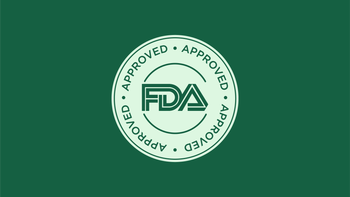
Causes of a Lupus Flare: Symptoms, Triggers, and Treatments
Key takeaways:
Lupus flare-ups can be triggered by stress, infection, or missed doses of medication.
To prevent a lupus flare, focus on your medication schedule, self-care, and sun protection.
Hydroxychloroquine is the best medication to help prevent lupus flares.

Lupus is a life-long autoimmune condition. Symptoms from autoimmune conditions can come and go. Some days feel good, and some days feel not so good. Flares are what we call the “not so good” times — that is, the times when symptoms temporarily worsen. Learning about what can trigger flares and how to prevent them is one way you can take control of your lupus.
In this article, we explain the signs and symptoms of lupus flares, and offer tips on how to treat and prevent them.
What are the signs and symptoms of a lupus flare?
Though some days living with lupus may feel worse than others, not all of these days are flares. In 2010, the Lupus Foundation of America published an official definition for a lupus flare. Lupus experts from all over the world created this definition. A lupus flare is a temporary period of time when your particular lupus symptoms feel worse in a way your provider can measure (by examining you or with a lab test). It often requires a change in treatment.

Looking to save on BENLYSTA (belimumab)?
BENLYSTA is for people 5+ with active SLE (lupus) or active lupus nephritis on other lupus medicines. Not for people with severe active central nervous system lupus.

Do not use BENLYSTA if you are allergic to belimumab or any ingredients in BENLYSTA.
The most important information about BENLYSTA
Immunosuppressive agents, including BENLYSTA, can cause serious side effects. Some of these may cause death.
• Infections:
fever, chills, pain or burning with urination, urinating often, coughing up mucus, or warm, red, or painful skin or sores on your body. Infections could be serious, leading to hospitalization or death.
• Allergic (hypersensitivity) reactions:
itching, swelling of the face, lips, mouth, tongue, or throat, trouble breathing, anxiousness, low blood pressure, dizziness or fainting, headache, nausea, or skin rash. Serious allergic reactions can happen the day of, or in days after, receiving BENLYSTA and may cause death.
• Mental health problems and suicide:
thoughts of suicide or dying, attempt to commit suicide, trouble sleeping (insomnia), new or worse anxiety or depression, acting on dangerous impulses, other unusual changes in your behavior or mood, or thoughts of hurting yourself or others.
Before receiving BENLYSTA, discuss with your healthcare provider if you:
• think you have an infection or have infections that keep coming back. Do not use BENLYSTA if you have an infection unless your healthcare provider tells you to.
• have or have had mental health problems such as depression or thoughts of suicide.
• have recently received or may need a vaccination. If you are receiving BENLYSTA, you should not receive live vaccines.
• are taking any medicines, including prescription, over-the-counter, vitamins, and herbal supplements.
• are allergic to other medicines.
• are receiving other biologic medicines.
• have or have had any type of cancer.
• have any other medical conditions.
• are pregnant or plan to become pregnant. It is unknown if BENLYSTA will harm your unborn baby. Talk to your healthcare provider about whether to prevent pregnancy while on BENLYSTA. If you choose to prevent pregnancy, you should use an effective method of birth control for at least 4 months after the final dose of BENLYSTA.
• become pregnant while receiving BENLYSTA, talk to your healthcare provider about enrolling in the BENLYSTA Pregnancy Registry. You can enroll in this registry by calling 1-877-311-8972 or go to https://mothertobaby.org/ongoing-study/benlysta-belimumab/
• are breastfeeding or plan to breastfeed. It is unknown if BENLYSTA passes into your breast milk.
Possible side effects of BENLYSTA
• Progressive multifocal leukoencephalopathy (PML). PML is a serious and life-threatening brain infection. PML can result in death or severe disability. Tell your healthcare provider right away if you notice any new or worsening medical problems: memory loss, trouble thinking, dizziness or loss of balance, difficulty talking or walking, or loss of vision.
• Cancer. Medicines that affect the immune system, including BENLYSTA, may increase your risk of certain cancers.
The most common side effects of BENLYSTA are nausea, diarrhea, fever, stuffy or runny nose and sore throat, persistent cough, trouble sleeping, leg or arm pain, depression, headache, and pain, redness, itching, or swelling at the site of injection (when given subcutaneously). These are not all the possible side effects of BENLYSTA. Call your doctor for medical advice about side effects.
Please see Prescribing Information and Medication Guide for BENLYSTA.
What is BENLYSTA?
BENLYSTA is a prescription medicine used to treat people 5 years of age and older with active systemic lupus erythematosus (SLE or lupus) or active lupus nephritis (LN) (lupus-related kidney inflammation) who are receiving other lupus medicines. It is not known if BENLYSTA is safe/effective in people with severe active central nervous system lupus.
It is not known if BENLYSTA, given under the skin, is safe/effective in:
• children with SLE under 5 years of age or weighing less than 33 lbs
• children with LN under 18 years of age
It is not known if BENLYSTA, given in a vein (intravenously), is safe and effective in children less than 5 years of age.
BENLYSTA IV is available as 120 mg in a 5-mL single-dose vial and 400 mg in a 20-mL single-dose vial. BENLYSTA SC is available as a 200 mg/mL single-dose autoinjector and prefilled syringe.
Trademarks owned by or licensed to the GSK group of companies.
©2024 GSK or licensor.
PMUS-BELWCNT240036 October 2024
Produced in USA.
Lupus flares are different for each person, since everyone has their own version of lupus. When your lupus flares, the symptoms of your lupus will be worse than normal. Sometimes, new symptoms can also occur.
For example, let’s say you get rashes and joint pain when your lupus is not well controlled. During a lupus flare, you could expect to have rashes, joint pain, and possibly a new symptom, too.
Some common symptoms of lupus flares include:
Painful and swollen joints
Rashes
Sores in the mouth or nose
Fatigue
Fevers (not caused by infection)
Abnormal blood or urine test results
How quickly can lupus flare up?
It depends. Some flare-ups can occur suddenly, over the course of just 1 or 2 days. Some flares take a longer time to build up — over weeks to months.
What can trigger a lupus flare?
Many different things can trigger a lupus flare. Some triggers are within your control, but some aren’t. The good news is that the most common cause of a lupus flare — missing doses of your medication — is within your control. It’s crucial to take your lupus medications as directed.
If you’re having trouble getting or taking your medications for any reason, talk to your healthcare provider or pharmacist. They can often help find a way to get you the medication you need. They can also help find an alternative if you’re having difficulty with side effects. If it’s hard for you to remember to take your medications, you could try using an app for medication reminders, setting an alarm on your phone, or placing the pill bottle by your toothbrush.
Other common causes of lupus flares include:
Stress
Not enough sleep
Infection
Pregnancy
Major surgery (like gallbladder removal or hip replacement surgery)
Traumatic injury (like a car accident)
Certain medications: For example, sulfa antibiotics like Bactrim might cause lupus flares in some people (but not all). Talk with your healthcare provider to make sure any new medication is safe for you to take before starting it.
Ultraviolet (UV) rays from the sun and certain kinds of indoor lights
Smoking
Can foods trigger a lupus flare?
Some foods — like alfalfa sprouts and garlic — may trigger lupus flares. That’s because they increase immune system activity, and the immune system is already too active in lupus. The studies to support this aren’t very strong, but many lupus experts agree that it’s reasonable to consider avoiding these if possible. Accidentally eating one of these foods is OK and will not result in immediate harm. The same is true for Echinacea, a dietary supplement some people take while sick to get better faster. Try to avoid this.
Treating a lupus flare
Lupus flares can make it hard to work, take care of your family, and do the things you enjoy. If you feel like you’re having a lupus flare, discuss your symptoms with your doctor. You might need to go in for an appointment or get blood and urine tests.
Your provider might need to adjust your medication(s) if your symptoms are very severe or certain new symptoms are present. You might only need a new medication for a short amount of time. But you may need to take other medications for longer. There is no one-size-fits-all approach. You and your provider will work together to find the treatment that works for you.
You can take action to treat your lupus flare, too. The following can help you feel better sooner:
Rest and sleep. This might mean taking some time off of work or asking for help around the house. You know yourself best. Take it easy.
Focus on your mental health and stress levels. There are stress management resources out there to help.
Lean on your support system. Friends, family, or local lupus support groups can help you get through a flare.
Take medications as directed. Missed doses of medications are a common cause of lupus flares, so be sure to stay organized.
Tips for preventing a lupus flare
Lupus flares are no fun — there’s no doubt about it. But there’s a lot you can do to decrease your risk of having a flare in the future.
First, try to avoid direct sunlight if you can. And use sun protection. Wear sunscreen with a minimum rating of SPF 50 that has both UVA and UVB protection (read the label on the bottle). When outside, wear hats, long sleeves, and long pants. Remember that some UV rays can pass through windows in your car or home, so sun protection is important inside, too.
Other ways to help prevent lupus flares include the following:
Getting enough sleep
Maintaining a healthy diet and exercise habits
Prioritizing mental wellness
Stopping smoking
Taking your medications as directed
What medications can help prevent lupus flares?
Hydroxychloroquine is the best medication to help prevent lupus flares. It’s sort of like a bulletproof vest: It can’t protect 100% of your body, but it sure decreases the chances of dying from a gunshot wound. Many studies have shown that hydroxychloroquine decreases your risk of lupus flare. It also protects you from many other complications of lupus.
If you can’t take hydroxychloroquine due to side effects or allergy, chloroquine or quinacrine might be options.
Is there a lupus diet I should follow?
Despite what you may have read online, there’s no specific lupus diet. But eating a balanced diet will help your body stay as healthy as possible — decreasing the chances of a lupus flare. A healthy diet will also decrease your risk of other health problems (like heart disease) that are more common in people with lupus.
The bottom line
Lupus flare-ups can take a toll on your quality of life. If you are suffering from a flare, discuss your symptoms with your doctor to see if your medications need to be adjusted. Focus on self-care, and lean on your support system to get you through it. To prevent lupus flares, the best thing you can do is take your medications as directed. Diet, exercise, rest, and mental wellness are also important.
Why trust our experts?


References
Alcocer-Varela, J., et al. (1985). Effects of L-canavanine on T cells may explain the induction of systemic lupus erythematosus by alfalfa. Arthritis & Rheumatology.
Bax, C. E., et al. (2021). The effects of immunostimulatory herbal supplements on autoimmune skin diseases. Journal of the American Academy of Dermatology.
Brigham and Women’s Hospital. (2021). Lupus and the heart.
Johns Hopkins Lupus Center. (2021). 5 things to avoid if you have lupus.
Lehmann, P., et al. (2009). Clinic and pathophysiology of photosensitivity in lupus erythematosus. Autoimmune Review.
Lupus Foundation of America. (2013). Diet and nutrition with lupus.
Lupus Foundation of America. (2020). What is a lupus flare?
Lupus Foundation of America. (2021). Find support near you.
Ruiz-Irastorza, G., et al. (2010). Clinical efficacy and side effects of antimalarials in systemic lupus erythematosus: A systematic review. Annals of Rheumatic Disease.
Ruperto, N., et al. (2011). International consensus for a definition of disease flare in lupus. Lupus.
Skin Cancer Foundation. (2019). How to read a sunscreen label.

























